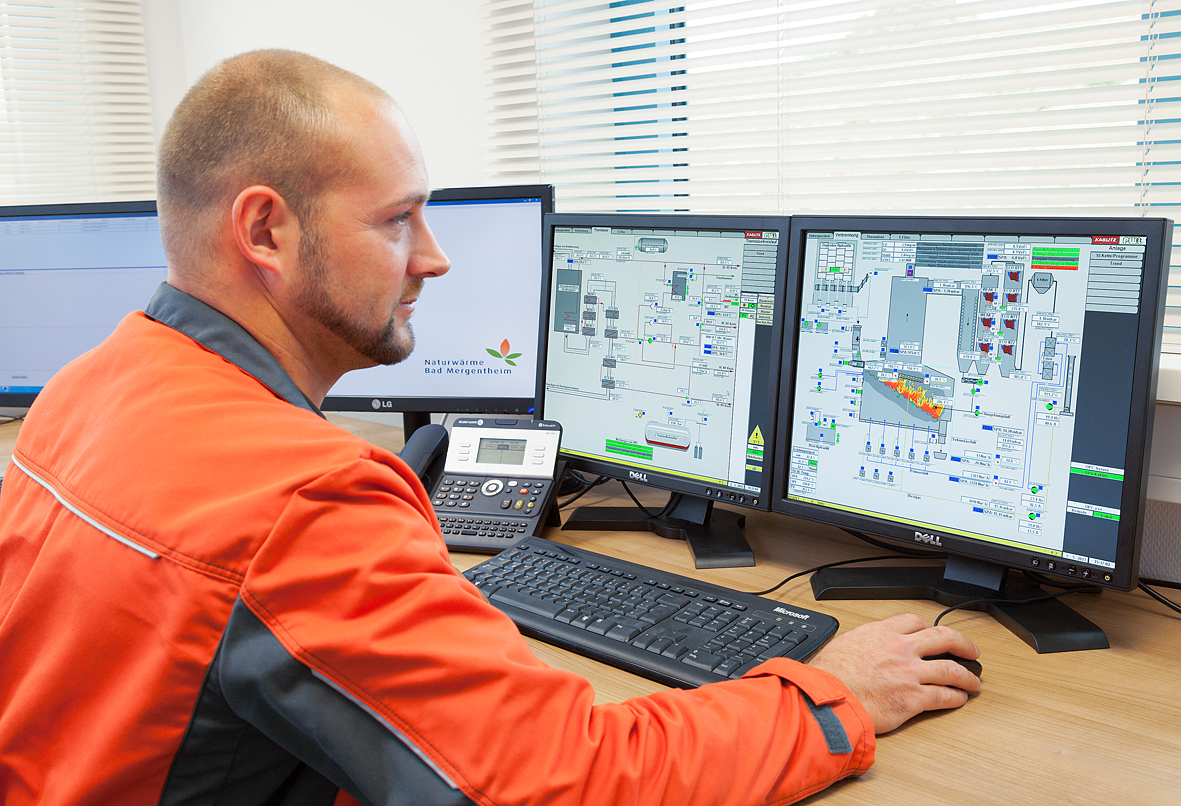Measurement and control engineering refers to a technical and scientific field and covers an area of automation technology.
In this specialist field, the often overlapping phenomena of measurement technology, control technology and control engineering are considered in conjunction. It is often also referred to as MSR or EMSR technology for E electrical M measurement, S control and R regulation.

Natural heat control center Bad Mergentheim (Gammel Engineering)
Measurement technology
Measurement technology deals with devices and methods for measuring physical quantities such as length, mass, force, pressure, electric current, temperature or time. Depending on the application, the continuously measured variable is usually generated as an electrical signal for further processing.
Control technology
Control technology is based on measurement technology and uses information processing of the measured values to control actuators in order to influence physical variables. A characteristic feature of control technology is that the physical variables influenced by actuators do not affect the measured variable. This means that there is always a so-called open action path in control technology. The open action path is also referred to as an open control chain.
Control engineeringControl engineering extends the methods of control engineering to include a feedback coupling of the influenced variable, called the control variable or actual value, to form a closed control loop. An actual value of the influenced variable is determined using the measurement technology, compared with a specified reference value or target value and the control variable is influenced by the controller so that the deviation between the actual value and target value is minimized
Control engineering is a branch of automation technology and an engineering science that deals with the control processes that occur in technology. A technical control process is the targeted influencing of physical, chemical or other variables in technical systems. The variables must either be kept as constant as possible (fixed-value control) or influenced in such a way that they follow a predetermined change over time (follow-up control).
Control means measuring the variable to be influenced (control variable) and a continuous comparison with the desired value. The controller calculates a manipulated variable according to the deviation, which acts on the controlled variable in such a way that it minimizes the deviation and the controlled variable assumes the desired time response
A given dynamic process (controlled system) can be determined as a mathematical model by means of an experimental system analysis using suitable test signals and measurement of the system response. Taking into account the control loop design strategies, the control loop simulation is carried out on the computer if necessary, followed by the practical test of the control loop with controller optimization during commissioning.
Sources :Wikipedia
http://de.wikipedia.org/wiki/Regelungstechnik